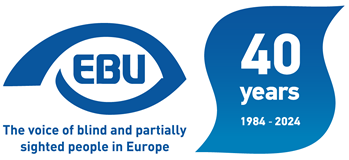A new international survey reveals that audio description (AD) is an important assistive technology worldwide providing access to people who are blind or have low vision to the arts and many other visually-rich events.
The new international AD survey (69 countries and the Pacific Disability Forum) finds that:
- 67% of respondents said that AD is available in the respondent’s country;
- cinema, television, live performing arts, and DVDs lead the list of the type of AD experiences available (followed by museums, the web, smartphones, in educational settings and in visitors’ centers);
- almost 45% said that AD is required by law (64% of those respondents reported that it was required for broadcast television); and
- 99% of respondents said that they believe AD or more AD should be available.
The World Blind Union and the American Council of the Blind are long-time supporters of the growth of AD. Both groups are eager to learn more about the use of AD by people who are blind or have low vision in its member nations, including some of the barriers to its use. (The World Health Organization reports that an estimated 253 million people live with vision impairment.)
Audio description makes visual information of media and the visual or performing arts, in particular, more accessible to persons who are blind or vision impaired. For media and in the performing arts, language, carefully crafted and timed, is voiced usually during the natural pauses in a program’s original soundtrack.
Kim Charlson, President of the American Council of the Blind, emphasizes that “Cultural activities are an important element of our society, often expressing values, trends, fads, historical perspectives, or future directions. People who are blind or visually impaired want and need to be a part of society in all its aspects. Audio description provides the means for blind or visually impaired people to have full and equal participation in cultural life, accessibility to an event, and the right to be first-class citizens. In short, the ability to contribute to, participate in, and enjoy the treasures that society offers.”
Jose Viera, CEO of the World Blind Union, says that “Throughout the world unemployment among people is a significant problem. I am certain that with more meaningful access to our culture and its resources, people become more informed, more engaged with society and more engaging individuals—thus, more employable.”
Additional information about ACB’s Audio Description Project

